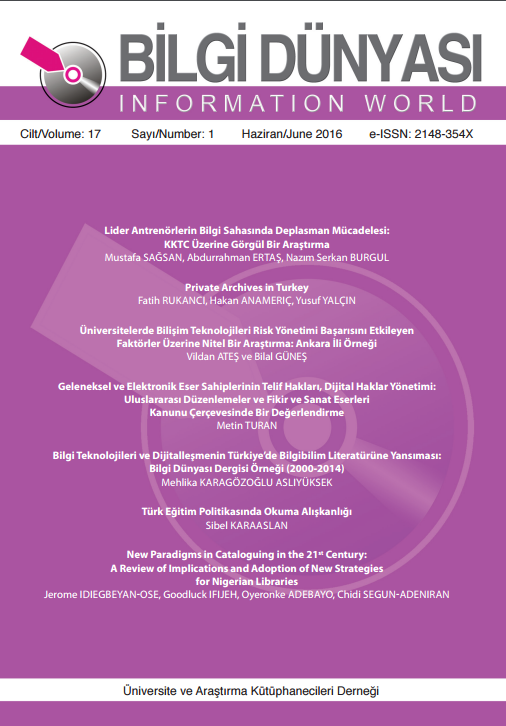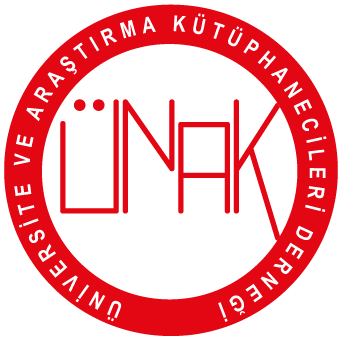New Paradigms in Cataloguing in the 21st Century: A Review of Implications and Adoption of New Strategies for Nigerian Libraries
DOI:
https://doi.org/10.15612/BD.2016.500Anahtar Kelimeler:
Cataloguing, 21st century library, cataloguers, Nigerian libraries, ICT in cataloguingÖzet
The purpose of this paper is to discuss new paradigms in cataloguing in 21st century and its implications and challenges for libraries in developing countries like Nigeria. The authors recommended the adoption of new strategies. The paper adopted four dimensional approaches in the discussion of issues. In the first part, the paper introduces the concept of 21st century library. The second approach focused on the role of information and communication technology in cataloguing and recent cataloguing practices. In the third approach, the paper compared cataloguing practices in developed countries with Nigeria. The fourth and final approach discussed implications, challenges and strategies for Nigerian libraries to adopt. The paper listed some challenges and strategies that Nigerian libraries and other developing countries should adopt, such as funding, training of staff, provision and maintenance of infrastructure, eradication of corruption, and so on. While there is numerous literature on the challenges of application of ICT to library operations in Nigeria, very few recommend practical and workable strategies to solving the problems. This paper proposed the adoption of new and workable strategies to efficient and effective application of ICT to cataloguing operations.
İndirmeler
Yayınlanmış
Nasıl Atıf Yapılır
Sayı
Bölüm

Bu çalışma Creative Commons Attribution 4.0 International License ile lisanslanmıştır.






